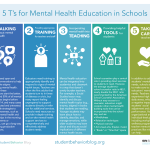Table of contents
Mindfulness: The Secrets to Maintaining Good Family Health and Wellness
Do you want to keep your family healthy and well-balanced? One of the most powerful tools you can rely on is mindfulness. Mindfulness is the practice of focusing on the present. It helps people open their awareness to thoughts, feelings, and bodily sensations. In the context of family health and wellness, mindfulness can be a valuable tool, providing a number of benefits and aiding families to maintain good health.
What is Mindfulness?
At its core, mindfulness is an awareness and observance of present experiences. It entails making an effort to stay focused on the present moment. This means paying attention to details such as body sensations, emotions, words, and the environment. The ultimate goal is to become non-judgmental and less reactive to stimuli.
Benefits of Mindfulness for Family Health and Wellness
Mindfulness can have a positive impact on all members of the family. Here are some of the primary benefits:
- Reducing Stress – Mindfulness has been demonstrated to reduce stress and anxiety. It can help families to stay calm during moments of high tension. Mindfulness can also be used as an effective stress-reduction strategy for any family member that needs extra attention.
- Improving Concentration – Family members become more attentive and aware of their surroundings while practicing mindfulness. This improved awareness of the present helps to focus the mind on what really matters and can often result in improved concentration levels.
- Improving Relationships – Through mindfulness, families can learn to reduce conflict and nurture empathy. Practicing mindfulness also helps to foster trust and communication between family members by encouraging greater understanding and respect.
- Strengthening Conflict Resolution Skills – Mindfulness can help to equip family members with the skills to deal with conflict and difficult conversations in a more effective manner. Mindfulness can also provide insight into the underlying cause of the conflict, helping families to focus on solutions rather than the problem.
- Promoting Self-Awareness – Mindfulness can be a powerful tool for self-discovery. It can help individuals to understand their own emotions, thoughts, and desires better, increasing self-awareness and aiding the process of reflection.
- Enhancing Wellbeing – Practicing mindfulness can lead to improvements in physical and mental wellbeing. By treating the mind and body with greater kindness, mindfulness can build resilience and foster a sense of contentment. It can also help to refine the things in life that really matter.
How to Practice Mindfulness with Your Family
Creating a mindful environment in the family home is fairly simple. Here are some useful tips to get you started:
- Designate a calm space – Decide on a place in the home where family members can go to reflect, take a break, and lower their stress levels. This space can be in any room, and it is important for everyone to respect the designated area.
- Take time to talk – Carve out time in the day for family members to sit down and have an open discussion about their thoughts, feelings, and experiences. Focus on listening, respect, and understanding.
- Encourage activities – Set aside time for activities that promote mindfulness, such as yoga, nature walks, and playing music. This can help to relax the mind and strengthen the family connection.
- Mindful eating – Eating can be a great opportunity to practice mindfulness. Take the time to savor the food and focus the mind on the present moment.
Conclusion
Family health and wellness is an invaluable asset. Mindfulness can help to foster health and wellbeing by providing numerous benefits to all family members. Mindfulness can help reduce stress, improve relationships, and promote self-awareness. It can also encourage a greater appreciation for the things in life that really matter.
Mindfulness does not have to be a complicated practice. It can be incorporated into everyday activities, such as talking, outdoor activities, eating, and basic physical activities. With just a few simple steps, any family can create mindfulness habits that will last for years to come.
In conclusion, mindfulness is an effective tool for maintaining family health and wellness. It offers numerous benefits, such as improved concentration and reduced stress, and can be used to foster trust and understanding among family members. With just a few simple steps, it is easy to incorporate mindfulness into everyday activities and make it a part of your family’s routine.







